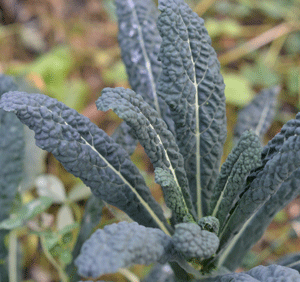Welcome to week 2 of How To Beat The Winter Blues!
 How did you get on with last week’s techniques, of figuring out how you ‘do’ the winter blues – and what you want instead? I’d love to hear how you’re getting on, over at the forum.
How did you get on with last week’s techniques, of figuring out how you ‘do’ the winter blues – and what you want instead? I’d love to hear how you’re getting on, over at the forum.
This week we’re moving on to a really important topic for the winter blues – how to revitalise yourself, so you don’t end up feeling sluggish and exhausted all winter – that would be a sure-fire recipe for the blues!
And I’m bringing you a 5-step strategy, to help you keep your energy levels high, throughout the winter.
Interested?
But before I dive in and talk about how to keep your energy levels where they need to be, I want to let you in on a perhaps obvious secret, but one which most of us forget in our modern, hectic lifestyle:
Want to discover How To Beat The Winter Blues? Join this online course today and you can start changing your life in the next five minutes.
Want to join in with this course? Upgrade to discover How To Beat The Winter Blues today.
Hi %%FIRST_NAME%%! You get to read the rest of this instalment because you’re registered for How To Beat The Winter Blues. Thanks! Clare
Winter is designed for hibernation.
Have you noticed how much easier it is to feel full of energy, when the sun is shining, when the days are long and when the temperatures are warmer?
We can get so much more done, in the summer.
So why do we try to keep going at that level, when the autumn and winter arrive?
Our modern lifestyle has separated us from the seasons – from the natural flow of life – from experiencing the difference between summer, with its ‘doing’, and winter, with its ‘resting’. The human body is designed to run on ‘daylight’ hours – and the advent of artificial lighting opened up the option of keeping going, day and night, despite our body’s different needs, at different times of the year.
As little as 200 years ago, those who weren’t rich enough to afford candles would get up at dawn and go to bed not long after sun-down. In those two very short centuries (in evolutionary terms!) we have gone from living in tune with the seasons and honouring our body’s need to rest, to forcing ourselves to keep going, getting up too early and going to bed too late.
We keep going at full speed, all year round, and then wonder why we feel exhausted!
An old friend of mine used to say that our body’s energy is like two bottles – one is used during the day and topped up each night when we sleep; the other is our ’emergency’ bottle, to be used only when needed – and it takes much more effort to top it back up.
Running a summer schedule in winter means we’re draining that second bottle, on a daily basis.
Now, I’m not suggesting that you curl up in bed and hide until spring – though sometimes that can feel tempting.
Instead, I’m suggesting that you look at how and where you could slow down this winter, how you could conserve your energy, how you could create the space for your body, mind and soul to rejuvenate themselves, ready for next spring.
And the rest of today’s instalment gives you plenty of ideas for ‘how’.
5 Essential Strategies To Revitalise And Energise Yourself This Winter
These five essential strategies can form the core of your winter blues body-support action plan. You can dive in and do all of them, or pick the one that resonates most for you, to make gentle changes in your life.
No one is going to check up on you or judge you over this – it’s up to you to do what feels right for you!
1. Be Gentle With Yourself

As I have already said, in winter, our body is designed to semi-hibernate. So keeping on pushing yourself as hard as you did all summer will lead to exhaustion.
We are designed to rest and sleep more in winter, so honouring your body’s need for this is essential.
Being more gentle with yourself will reduce your stress levels and cut the amount of stress hormones and adrenalin running through your body. In fact, forcing yourself to keep going, when you need to rest, is a great way to deplete your adrenal glands and create longer-term health problems.
So I’m wondering…
- What could you let go of, to allow yourself to slow down a little this winter?
- What could you do differently, to give yourself more time to rest?
- Which patterns and habits are you currently running, that might need some tweaking, to allow you to slow down and be more gentle with yourself this winter?
If you need inspiration on this, you could go back to last week’s 2 magic questions, asking yourself these about why you’re rushing around too much in winter – and see what pops up.
As ever, please share any insights and questions via the forum!
2. Allow Your Body To Detox
At the change of seasons, just like plants, our body receives signals from nature to make shifts – unconsciously. If we honour those signals and act accordingly, then things normally run fine. When we ignore or override those signals, we’re heading towards trouble.
Autumn and winter are a time when we feel urged to shift down a few gears and your body needs to detox – to let go of the summer and have a gentle clear-out. It’s one of the reasons why so many of us get colds at the start of autumn – it’s a natural way to release old toxins.
If we don’t give ourselves the chance to release these toxins, gently and naturally, we are likely to ‘force’ our body to get rid of them through colds and infections.
How do you release toxins? By slowing down, by reducing sugar and processed foods, through gentle exercise, by drinking good quality water (warm, rather than iced) and through gentle exercise such as walking or yoga.
If you get a cold this winter, rather than suppressing it with medication, if your health allows, consider letting it run its course, using it as an excuse to rest and support your body with its clear-out. You’ll feel much better for it.
3. Eat What Nature Is Offering
In summer, most of the foods in season (in my bit of the Northern Hemisphere!) are very high in water content. Mother Nature knows that we need hydrating with food that is quick and easy to digest, light for the body and full of the quick-release nutrients we need to be busy, throughout the long days.
Then, in autumn and winter, she knows that we need less water and more fuel, released slowly, to keep us warm, in the form of high-fibre carbs and vegetable sugars.
If you eat a ‘supermarket diet’ of all-year-round veggies and fruit, then your body won’t be getting what it needs. If you eat summer goodies, such as courgettes, salads, tomatoes, aubergines, peppers, strawberries and melons, you will be feeding your body summer fuel in winter.
Summer-harvested foods are usually found above the ground and are filled with the sun’s energy, designed to meet our summer needs. Winter-harvested foods are usually found in or around ground level and are designed to meet our winter needs.
Shifting your food with each season is a brilliant way to mark those changes and to honour what your body most needs, when it needs it.
 Winter goodies include swedes (rutabaga), potatoes, carrots, parsnips, broccoli, dark leafy greens, pumpkins, winter berries, leeks, mushrooms and fresh nuts.
Winter goodies include swedes (rutabaga), potatoes, carrots, parsnips, broccoli, dark leafy greens, pumpkins, winter berries, leeks, mushrooms and fresh nuts.
See how different these are (and ‘feel’) to summer salads and fruits?
Chinese and oriental medicine, as well as traditional Ayurvedic medicine, recommends eating cooling foods in summer and warming foods in winter. If you eat cooling foods in winter, you’re going to cool your systems too much, forcing your body to compensate, leading to physical, mental and emotional tiredness.
Eastern philosophies believe that the kidneys, lungs, pancreas and mucus membranes need support during the winter season. Supporting these organs and beating the winter blues can be as simple as shifting your diet, as the seasons change.
However, if you think there may be an underlying nutritional deficiency running for you – or you would like to work with an inspirational nutritionist, I can strongly recommend Julie Hotchkiss, my personal nutritionist. Booking a session with her could change your life. 
4. Change The Way You Exercise
 Running, pounding the gym and moving fast and hard are all a great part of your summer exercise routine, but in winter your body needs other things.
Running, pounding the gym and moving fast and hard are all a great part of your summer exercise routine, but in winter your body needs other things.
Instead of pushing yourself, it’s important to honour your body’s need to slow down, recharge and release.
I’m not suggesting that you become a couch potato. In fact, one of the things that can trigger the winter blues is sitting around and watching too much TV or being stuck on your computer, because lack of movement reduces the flow of lymph through the body, creating a build-up of toxins and lowering your energy levels.
Instead, it’s worth considering how your current exercise regime (if you have one!) feels for you, now that winter is here.
Is there anything that feels too ‘full-on’? What feels like it might need to shift?
Is there an aspect of it that could become more gentle and supporting, over the coming months?
I strongly recommend to my one-to-one clients and my meditation students that they experiment with yoga – all year round, but especially in the winter months, if they suffer from the winter blues. It can help to keep you fit, but it also balances the body and mind, helps to keep toxins gently leaving your body and strengthens all of the body’s systems.
A great sequence in winter, if your energy levels are feeling low, is the Inner Fire Sequence from Dru Yoga. Here’s a video to talk you through it:
Also the best exercise you can get in winter is walking outdoors. Not only does this get your lungs full of fresh air – and fresh supplies of oxygen (after your central heating has dried them out – see point 5), but it can really help to make sure you’re getting enough Vitamin D from sunlight, which can help to lift your mood. The endorphins from a brisk walk will cheer you up, fast.
There’s no such thing as bad weather; just bad clothes.
Swedish saying
5. Make Your Body ‘Central Heating-Proof’
Running the central heating is a vital part of staying warm in winter and, in the relatively few years we have had central heating in our homes, it has certainly helped to reduce the number of people dying of hypothermia and chest infections. But it comes with a price:
Central heating can cause your body to dehydrate, your skin to feel dry and it can make you feel tired.
Most of us have our homes too warm. We don’t realise that this extra heat can cause us to dehydrate. And the impact of central heating on your skin can be major for some people. The dry air can irritate mucus membranes in the nose, throat and lungs, too.
So, to get your body ‘central-heating-proof’, you could:
- Increase your intake of water (warm, not iced) or herbal teas over the winter months
- Hang a small container of water on your radiator, to stop the room from becoming too dry (watch out for damp, obviously!)
- Make sure you’re getting enough omega oils – in the right balance (talk to a nutritionist, if you’re not sure). Great skin comes from the inside out.
- If your skin is dry, watch out for chemcial toxins in your body lotion – consider going the more natural ayurvedic route instead, with oils such as sesame – you’ll love the difference it makes.
- Don’t run your heating if you don’t need to. I’m not talking about switching it off completely, but consider whether a jumper or warmer socks would make a difference, first. Often, if you’re feeling sluggish, hot dry air is the last thing you need.
This Week’s Affirmation:
“I choose to enjoy using my energy wisely today.”
I hope you find today’s strategies helpful. I’d love to hear how you’re getting on – over at the Forum.
Next week I’ll be back with insider secrets for how you can rope in the power of your Monkey Mind, to help you handle the winter blues.
I hope you have a great week!


